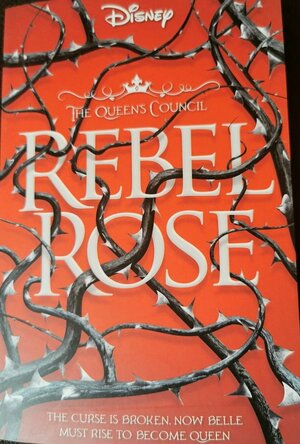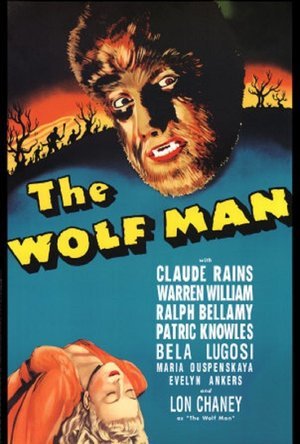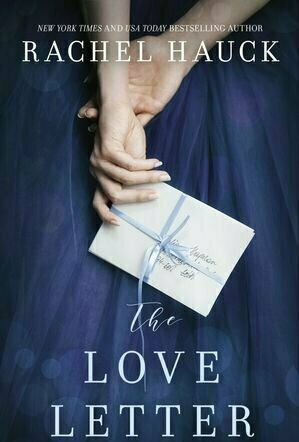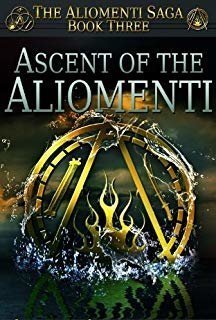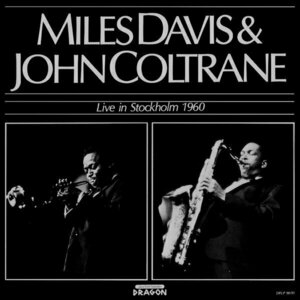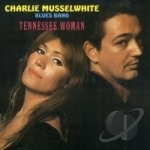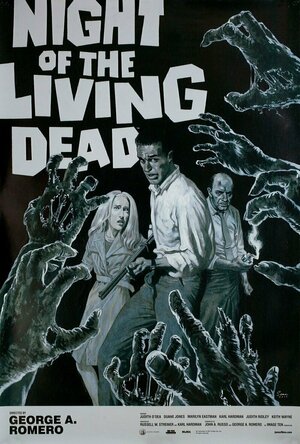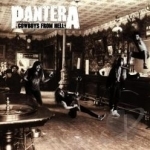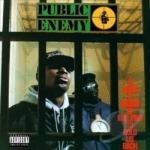Search
Search results
Lottie disney bookworm (1056 KP) rated Rebel Rose (The Queen's Council #1) in Books
Dec 29, 2020
Contains spoilers, click to show
Set against the backdrop of revolutionary France, ‘Rebel Rose’ continues the story of Beauty and the Beast after the curse is broken. Belle and her Prince now have to find a way to navigate married life, rank, politics and explain a 10-year absence from the French Court of Versailles.
Controversially, Emma Theriault baits the hardcore Disney fans straight out of the gates by naming her Prince Lio (Lio, Lion, beast, gettit?) rather than Adam. In the grand scheme of things this can easily be forgiven but it still seems a strange choice. Maybe Adam was too English for a French Prince?
However, the use of first person perspective ensures that our protagonist remains firmly in Belle. Belle has refused the title of Princess upon marriage in order to stay true to her roots but is constantly hiding her true self: even referring to a trip around Europe as “one last adventure before the walls of the castle close around her”. When Belle witnesses the revolutionary sparks within the city this divides her further: how can she be part of the nobility these people rally against and an avid “commoner” at the same time?
In truth, Belle as a character divided me as well. Belle has always been my favourite Disney Princess (possibly to do with that massive library) and, in the most part, I feel Theriault wrote her well and stayed true to the character. However, in the early pages Belle felt very spoilt and selfish to me: preferring to disguise herself and explore Paris rather than support Lio in explaining his decade-long disappearing act to King Louis.
I was intrigued to know what my fellow reviewers thought and was unsurprised to see a LOT of criticism of our heroine, her shunning of the title of Princess and her lack of enthusiasm to be a leader. However, I almost felt that this made the story more realistic. Just because she broke a curse and married a Prince doesn’t mean she can automatically feel ready and comfortable leading a kingdom! Maybe she just has a fondness for hairy men?
Belle’s reluctance and tentativeness to lead also fed very nicely into her passion to improve the lives of the residents of the kingdom of Aveyon. This is common sense to her and therefore doesn’t feel like ruling. Indeed, it is not seen by any of the main characters as ruling but in the end it saves them all from a revolution of their own.
I would have liked Lio to be a little bit more developed than he was. The fact that he harboured an element of PTSD from the curse was really interesting but not explored any further than his nightmares and aversion towards roses. There was undoubtedly chemistry between him and Belle but it was just a bit lacklustre in my opinion. This may be due to his absence for a lot of the book but I felt the reader could have loved him a lot more than we did.
Lio’s cousin Bastien is the slimy villain of the tale and I would have liked a bit more mystery and suspense within his character. I appreciated that Belle didn’t like him initially as he was a powdered, wig wearing noble who was close to King Louis, basically as far away from Belle as possible. Bastien is also quite snobby towards Belle in his earliest chapters so you can’t blame her for disliking him.
However, by using language to plainly show that Belle distrusts her husband’s cousin, Theriault instantly creates a flashing neon “villain” sign above his head. This would have been fine in a middle-grade book but within YA I think the reader could have been afforded to be misled a couple of times before uncovering Bastien’s real intentions.
**This section contains spoilers**
I also believe that Bastien’s eventual story arc was a tad unbelievable. At first I thought his revolutionary sympathies and further plots with various goons was a ruse in order to gain the throne for himself, particularly once he had established himself firmly with the advisory. Emma Theriault’s decision to keep Bastien true to the revolution seemed rushed, and a bit odd to be honest. This is a noble who lives in the lap of luxury and attends to King Louis himself but who then turns on his own kind after basically forcing the kingdom of Aveyon to break away from France? It didn’t seem plausible to me.
Rebel Rose is an easy to read continuation of one of our favourite Disney tales. It reintroduces us to old favourites such as Mrs Potts and Lumiere as well as introducing new characters such as Marguerite and Bastien. Belle’s journey to staying true to herself and following her gut is one anyone can empathise with and her discovery that she does not have to appease to outsider’s expectations will never cease to be important.
The magic contained within this novel is a perfect springboard for the rest of the novels within the Queen’s Council series: the next one is based on Mulan and will be written by Livia Blackburne before Jasmine’s story by Alexandra Monir follows in 2022. The majority of the action within this novel does take place towards the end so it can be a little slow paced and politics focused but I enjoyed seeing Belle and Lio break free of their fairytale life and become a little more real.
Although this isn’t my favourite Disney novel, I do appreciate the break away from the retelling genre and the move towards bringing these well-known characters into the real world. For a debut novel I think Emma Theriault should be immensely proud: the research for the historical context alone must have been a mission!
Controversially, Emma Theriault baits the hardcore Disney fans straight out of the gates by naming her Prince Lio (Lio, Lion, beast, gettit?) rather than Adam. In the grand scheme of things this can easily be forgiven but it still seems a strange choice. Maybe Adam was too English for a French Prince?
However, the use of first person perspective ensures that our protagonist remains firmly in Belle. Belle has refused the title of Princess upon marriage in order to stay true to her roots but is constantly hiding her true self: even referring to a trip around Europe as “one last adventure before the walls of the castle close around her”. When Belle witnesses the revolutionary sparks within the city this divides her further: how can she be part of the nobility these people rally against and an avid “commoner” at the same time?
In truth, Belle as a character divided me as well. Belle has always been my favourite Disney Princess (possibly to do with that massive library) and, in the most part, I feel Theriault wrote her well and stayed true to the character. However, in the early pages Belle felt very spoilt and selfish to me: preferring to disguise herself and explore Paris rather than support Lio in explaining his decade-long disappearing act to King Louis.
I was intrigued to know what my fellow reviewers thought and was unsurprised to see a LOT of criticism of our heroine, her shunning of the title of Princess and her lack of enthusiasm to be a leader. However, I almost felt that this made the story more realistic. Just because she broke a curse and married a Prince doesn’t mean she can automatically feel ready and comfortable leading a kingdom! Maybe she just has a fondness for hairy men?
Belle’s reluctance and tentativeness to lead also fed very nicely into her passion to improve the lives of the residents of the kingdom of Aveyon. This is common sense to her and therefore doesn’t feel like ruling. Indeed, it is not seen by any of the main characters as ruling but in the end it saves them all from a revolution of their own.
I would have liked Lio to be a little bit more developed than he was. The fact that he harboured an element of PTSD from the curse was really interesting but not explored any further than his nightmares and aversion towards roses. There was undoubtedly chemistry between him and Belle but it was just a bit lacklustre in my opinion. This may be due to his absence for a lot of the book but I felt the reader could have loved him a lot more than we did.
Lio’s cousin Bastien is the slimy villain of the tale and I would have liked a bit more mystery and suspense within his character. I appreciated that Belle didn’t like him initially as he was a powdered, wig wearing noble who was close to King Louis, basically as far away from Belle as possible. Bastien is also quite snobby towards Belle in his earliest chapters so you can’t blame her for disliking him.
However, by using language to plainly show that Belle distrusts her husband’s cousin, Theriault instantly creates a flashing neon “villain” sign above his head. This would have been fine in a middle-grade book but within YA I think the reader could have been afforded to be misled a couple of times before uncovering Bastien’s real intentions.
**This section contains spoilers**
I also believe that Bastien’s eventual story arc was a tad unbelievable. At first I thought his revolutionary sympathies and further plots with various goons was a ruse in order to gain the throne for himself, particularly once he had established himself firmly with the advisory. Emma Theriault’s decision to keep Bastien true to the revolution seemed rushed, and a bit odd to be honest. This is a noble who lives in the lap of luxury and attends to King Louis himself but who then turns on his own kind after basically forcing the kingdom of Aveyon to break away from France? It didn’t seem plausible to me.
Rebel Rose is an easy to read continuation of one of our favourite Disney tales. It reintroduces us to old favourites such as Mrs Potts and Lumiere as well as introducing new characters such as Marguerite and Bastien. Belle’s journey to staying true to herself and following her gut is one anyone can empathise with and her discovery that she does not have to appease to outsider’s expectations will never cease to be important.
The magic contained within this novel is a perfect springboard for the rest of the novels within the Queen’s Council series: the next one is based on Mulan and will be written by Livia Blackburne before Jasmine’s story by Alexandra Monir follows in 2022. The majority of the action within this novel does take place towards the end so it can be a little slow paced and politics focused but I enjoyed seeing Belle and Lio break free of their fairytale life and become a little more real.
Although this isn’t my favourite Disney novel, I do appreciate the break away from the retelling genre and the move towards bringing these well-known characters into the real world. For a debut novel I think Emma Theriault should be immensely proud: the research for the historical context alone must have been a mission!
Connor Sheffield (293 KP) rated The Wolf Man (1941) in Movies
May 25, 2017
A classic Universal Monster Movie (2 more)
Lon Chaney Jr
Claude Rains
Even a Man who is pure of heart....
Even a man who is pure of heart, and says his prayers by night, may become a wolf when the wolfsbane blooms, and the Autumn moon is bright.
Heard that before in other werewolf movies, well this was it's origin. Created purely for the film, this poem even had some people believing it was an original folklore saying. If you have watched a handful of werewolf movies, then you will have noticed a lot of similarities;
- Silver bullets
- Wolfsbane
- Full Moon
- Not being able to retreat their acts from their loved ones
- Pentagrams
- Gypsies
- Gypsy Curses
- A Bite or scratch from the werewolf turns you
Some of these were originally created by the writers working on this film, and have become stereotypes that inspire many other werewolf films, TV Shows, Books, and Games etc.
The portrayal of Lawrence Talbot, by Lon Chaney Jr. is one that makes the classic Universal Monsters so special. Just like Frankenstein's Monster, the audiences of the 40's would have been frightened and horrified by these creatures, enough so that they wouldn't realise that they are in actual fact, suppose to sympathize with them, because when you watch the creatures being chased and hunted,the angry mobs fail to understand that these creatures never wanted this. Frankenstein's Monster never asked to be created, or to have the brain of a criminal mistakenly placed into his head instead of that of a civilized man. Larry Talbot never asked for the Wolf Man's curse, which he encountered whilst trying to save the life of a young female friend of his love interest.
With a great story and, at the time, revolutionary stop motion effects for the wolf man transformation, but of course the most important aspect, the beautifully crafted practical effects, the makeup that brings the creature to life, is incredible. My favourite of the classic Universal Monster Movies and one of my favourite movies of all time.
Heard that before in other werewolf movies, well this was it's origin. Created purely for the film, this poem even had some people believing it was an original folklore saying. If you have watched a handful of werewolf movies, then you will have noticed a lot of similarities;
- Silver bullets
- Wolfsbane
- Full Moon
- Not being able to retreat their acts from their loved ones
- Pentagrams
- Gypsies
- Gypsy Curses
- A Bite or scratch from the werewolf turns you
Some of these were originally created by the writers working on this film, and have become stereotypes that inspire many other werewolf films, TV Shows, Books, and Games etc.
The portrayal of Lawrence Talbot, by Lon Chaney Jr. is one that makes the classic Universal Monsters so special. Just like Frankenstein's Monster, the audiences of the 40's would have been frightened and horrified by these creatures, enough so that they wouldn't realise that they are in actual fact, suppose to sympathize with them, because when you watch the creatures being chased and hunted,the angry mobs fail to understand that these creatures never wanted this. Frankenstein's Monster never asked to be created, or to have the brain of a criminal mistakenly placed into his head instead of that of a civilized man. Larry Talbot never asked for the Wolf Man's curse, which he encountered whilst trying to save the life of a young female friend of his love interest.
With a great story and, at the time, revolutionary stop motion effects for the wolf man transformation, but of course the most important aspect, the beautifully crafted practical effects, the makeup that brings the creature to life, is incredible. My favourite of the classic Universal Monster Movies and one of my favourite movies of all time.
MaryAnn (14 KP) rated The Love Letter in Books
Mar 5, 2019
When Chloe is given a peek at the script for an epic love story, she decides to take her destiny into her own hands and request an audition for the lead female role, Esther Kingsley. The compelling tale, inspired by family lore and a one-page letter from the colonial ancestor of scriptwriter Jesse Gates, just might break her out of this career-crippling rut. Jesse would rather write about romance than live through it after his past relationship ended in disaster. But once on-set together, the chemistry between Jesse and his leading lady is hard to deny.
Centuries earlier, in the heart of the Revolutionary War, Hamilton Lightfoot and Esther Longfellow wrote their saga off the silver screen. Esther’s Loyalist father opposes any relationship with Hamilton, but Esther must face her beloved father’s disapproval and the dangers of war in order to convince Hamilton of their future together. Hamilton has loved Esther for years and on the eve of battle pens the love letter she’s always wanted—something straight from the heart.
Set in stunning upcountry South Carolina, The Love Letter is a beautifully-crafted story of the courage it takes to face down fear and chase after love, even in the darkest of times. And just maybe, all these generations later, love can come home in a way, not even Hollywood could imagine.
My Thoughts:
This book was wonderful. It is a fast-paced book, the story flows well and keeps the reader interested. The characters are entertaining and easy to identify with. The reader finds themselves in the middle of the storyline cheering the characters on. I enjoyed the mix of past and present in the writing, it helped identify with all of the characters and helped the reader understand each of the main characters; what they were feeling and understanding what their life was like. Full of surprises, twists and fun, this is a great read. I highly recommend this book, giving it a 5-star rating.
Centuries earlier, in the heart of the Revolutionary War, Hamilton Lightfoot and Esther Longfellow wrote their saga off the silver screen. Esther’s Loyalist father opposes any relationship with Hamilton, but Esther must face her beloved father’s disapproval and the dangers of war in order to convince Hamilton of their future together. Hamilton has loved Esther for years and on the eve of battle pens the love letter she’s always wanted—something straight from the heart.
Set in stunning upcountry South Carolina, The Love Letter is a beautifully-crafted story of the courage it takes to face down fear and chase after love, even in the darkest of times. And just maybe, all these generations later, love can come home in a way, not even Hollywood could imagine.
My Thoughts:
This book was wonderful. It is a fast-paced book, the story flows well and keeps the reader interested. The characters are entertaining and easy to identify with. The reader finds themselves in the middle of the storyline cheering the characters on. I enjoyed the mix of past and present in the writing, it helped identify with all of the characters and helped the reader understand each of the main characters; what they were feeling and understanding what their life was like. Full of surprises, twists and fun, this is a great read. I highly recommend this book, giving it a 5-star rating.
Lyndsey Gollogly (2893 KP) rated Ascent of the Aliomemti in Books
Jul 24, 2019
A good solid start to a series
Contains spoilers, click to show
The Aliomenti village is in ruins, destroyed by one of their own, its population nearly eliminated in the calamity. From the ruins, the Aliomenti rise to international prominence, influencing buyers and sellers, warriors and bureaucrats, as they patiently and invisibly expand their empire.
Will Stark serves as the driving force loop behind that expansion. Whether he's directly creating their innovations or offering subtle hints to others, few of their revolutionary progressions are made without his influence.
But Will is dealing with his own private heartache. Even as he watches his fellow Aliomenti ascend to heights few of them imagined possible, his long journey becomes one he'll make very much alone. He's also haunted by the knowledge that what enables him to make that journey will also prevent him from seeing his most important mission to its completion.
Will must persevere, fighting through his own gloom, an organization that threatens to tear itself apart, and a reunion with old friends at a most inopportune time. And he'll come to realize that his own decisions, his own inability to understand even those he knows not to trust, have enabled a tyrant to seize control of the Aliomenti in the aftermath of an explosive crisis.
Having gotten to book 3 I'm a confused still as to whether it's sci-fi or supernatural or maybe a little bit of both. I'm enjoying this serious either way I love the dynamic of all the characters we come across. Watching Will jump Through so much to save his family while still helping to build the one thing he ultimately wants to destroy. All 3 books flow nicely into each other and I'm looking forward to finding out what has happened to Eve and what will become of the villages now Will has been kicked out! Also as will and Hope sail into the distance where their journey will lead.
Recommended!!

Will Stark serves as the driving force loop behind that expansion. Whether he's directly creating their innovations or offering subtle hints to others, few of their revolutionary progressions are made without his influence.
But Will is dealing with his own private heartache. Even as he watches his fellow Aliomenti ascend to heights few of them imagined possible, his long journey becomes one he'll make very much alone. He's also haunted by the knowledge that what enables him to make that journey will also prevent him from seeing his most important mission to its completion.
Will must persevere, fighting through his own gloom, an organization that threatens to tear itself apart, and a reunion with old friends at a most inopportune time. And he'll come to realize that his own decisions, his own inability to understand even those he knows not to trust, have enabled a tyrant to seize control of the Aliomenti in the aftermath of an explosive crisis.
Having gotten to book 3 I'm a confused still as to whether it's sci-fi or supernatural or maybe a little bit of both. I'm enjoying this serious either way I love the dynamic of all the characters we come across. Watching Will jump Through so much to save his family while still helping to build the one thing he ultimately wants to destroy. All 3 books flow nicely into each other and I'm looking forward to finding out what has happened to Eve and what will become of the villages now Will has been kicked out! Also as will and Hope sail into the distance where their journey will lead.
Recommended!!

